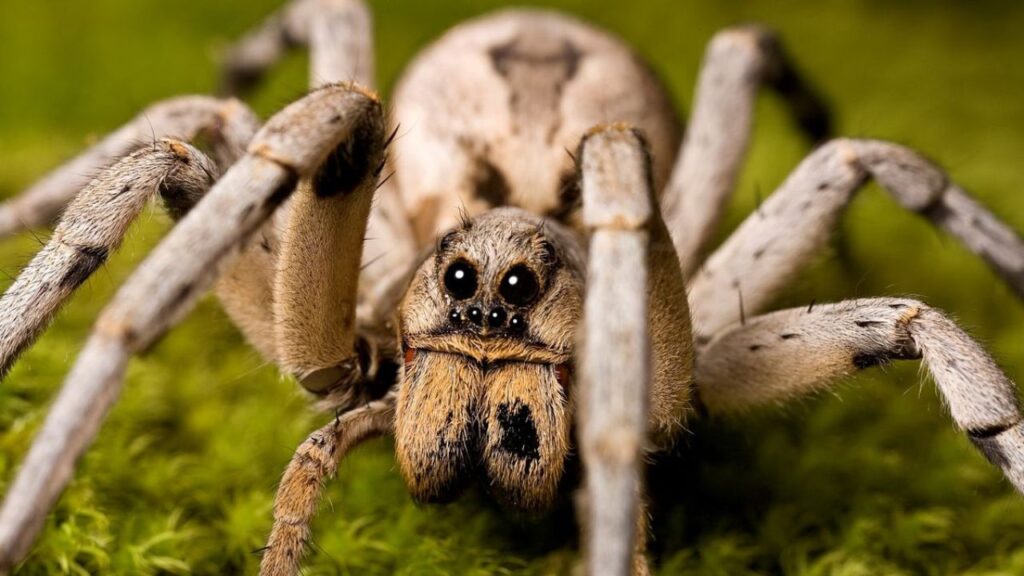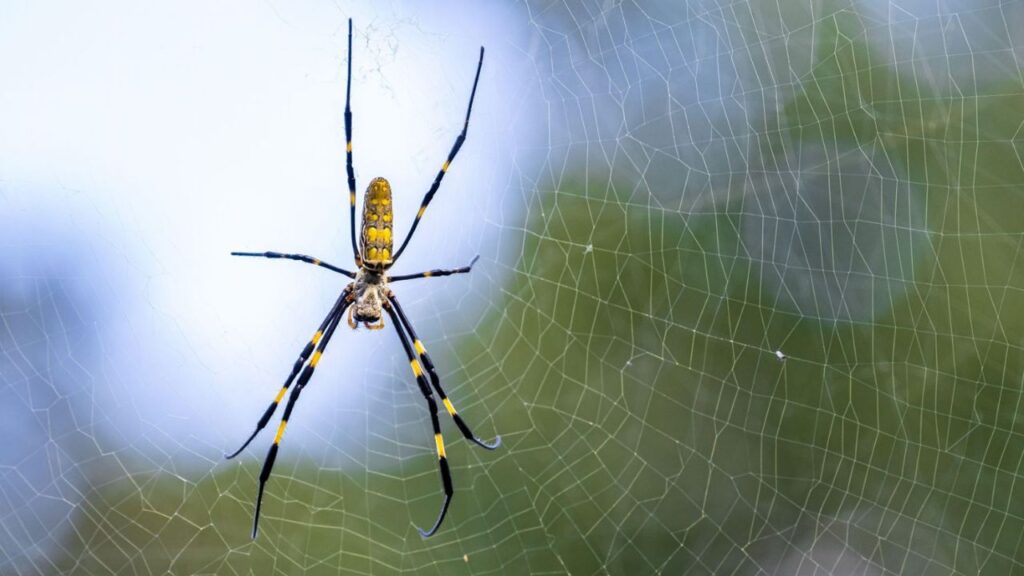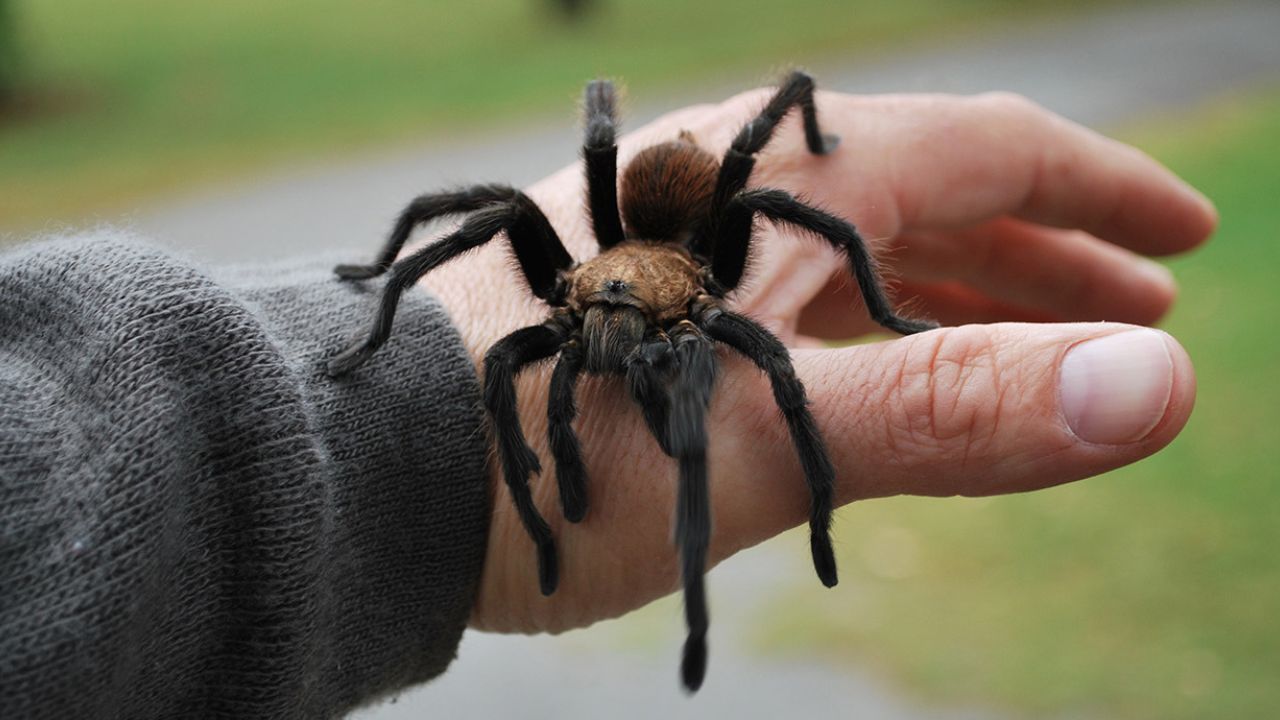Do Spiders Attack Humans? Spiders generally do not attack humans; most bites occur as a defensive reaction when they feel threatened.
Spiders are among the most feared creatures globally, often associated with danger, venom, and creepy behavior.
This fear stems from myths and misconceptions about spiders attacking humans.
Despite their bad reputation, most spiders are harmless, and their interactions with humans are typically accidental. But do spiders really attack humans?
This article delves into the behavior of spiders to clarify whether they actively attack people and under what circumstances bites occur.
We will explore spider behavior, the reasons behind bites, and how to coexist safely with these beneficial arachnids.
Contents
What Are Spiders?
Overview of Spiders:
Spiders are arachnids, a class of joint-legged invertebrates that also includes scorpions, ticks, and mites. With over 45,000 species worldwide, spiders are incredibly diverse, varying in size, color, and habitat.
They typically have eight legs, multiple eyes, and are known for spinning webs to capture prey. Most spiders are solitary predators, feeding primarily on insects and other small arthropods.
Their unique ability to produce silk allows them to create intricate webs, used for trapping prey, building nests, or protecting their eggs.
Role in Ecosystem:
Spiders play a vital role in our ecosystem by controlling insect populations. [Do Spiders Attack Humans?]
They are natural predators, feeding on various pests like mosquitoes, flies, beetles, and agricultural pests, which helps maintain ecological balance.
Without spiders, many harmful insects would proliferate, leading to increased crop damage and a higher risk of insect-borne diseases.
Spiders are considered natural pest controllers and are an essential part of many ecosystems, contributing to the overall health of our environment.
Spider Diversity and Adaptations:
Spiders have adapted to almost every habitat on Earth, from deserts to rainforests, caves to mountain tops. Some are ground dwellers, while others live in trees or water.
This diversity has led to various adaptations, such as camouflage, mimicry, and different hunting strategies, from web-building to active hunting.
Each spider species has evolved to fit its environment, making them incredibly versatile creatures. [Do Spiders Attack Humans?]

Do Spiders Attack Humans?
Understanding Spider Behavior:
Spiders are generally non-aggressive creatures that prefer avoiding human contact. They do not actively seek out humans to bite or attack.
Most spider species are shy and will flee when they feel vibrations or disturbances around them, such as a human approaching.
Unlike aggressive insects like wasps or bees, spiders do not have a social structure that prompts them to defend their colony.
Therefore, most spiders will only bite if they feel directly threatened or cornered. [Do Spiders Attack Humans?]
Defensive Reactions:
Most spider bites occur not as attacks but as defensive reactions. When a spider feels threatened or is accidentally pressed against a person’s skin, it may bite in self-defense.
This behavior is a natural response to what the spider perceives as a threat to its safety. [Do Spiders Attack Humans?]
Even when biting, many spiders release little to no venom (“dry bites”) to conserve their precious venom for prey rather than wasting it on perceived threats.
Factors That Influence Spider Aggression:
Certain conditions might make spiders more prone to defensive behavior. [Do Spiders Attack Humans?]
For example, during the mating season, some male spiders might display increased movement and aggression as they search for mates.
Environmental changes, such as loss of habitat due to human activity, can also cause spiders to feel cornered and act defensively.
Territorial instincts, particularly among female spiders guarding eggs or nests, can trigger defensive bites if they perceive humans as intruders.
Additionally, some spider species are naturally more defensive, like the funnel-web spider, which may bite more readily when threatened.
Common Misconceptions About Spider Attacks:
A common misconception is that spiders will aggressively pursue humans or “hunt” them down, but this is far from the truth.
Spiders lack the cognitive ability or motivation to pursue such behavior. Unlike predatory animals, spiders’ primary concern is survival, not confrontation.
The notion of a spider “attacking” a human is more a projection of our fears than an accurate portrayal of spider behavior.

Common Reasons for Spider Bites
Accidental Encounters:
Most spider bites occur when spiders are accidentally disturbed. [Do Spiders Attack Humans?]
This could happen when someone puts on clothes, shoes, or gloves that have a spider hiding inside, or when they roll over onto a spider in bed.
These are cases of the spider trying to defend itself from what it perceives as an attack.
Protective Instincts:
Female spiders, in particular, can be more aggressive if they are guarding their eggs or young.
If a human accidentally gets too close to their nest, the spider may bite as a means of protecting its offspring.
This defensive behavior is instinctual, as the survival of their young is a priority. [Do Spiders Attack Humans?]
Mistaken Identity:
Spiders may mistake a human’s actions for those of a predator. For instance, reaching into a dark corner or crevice could make a spider believe it is being attacked.
In such cases, a bite is purely a defensive reaction. The spider’s intention is not to harm but to protect itself from a perceived threat.
Are Spider Bites Dangerous?
Types of Venomous Spiders:
While most spider bites are harmless, a few species have venom potent enough to cause medical concerns.
The black widow and brown recluse spiders are two examples in the United States known for their dangerous bites. Their venom can cause severe symptoms in humans, requiring medical attention.
In other parts of the world, like Australia, there are additional venomous species like the funnel-web spider and the redback spider, which are known to cause significant medical concerns.
Symptoms of Spider Bites:
Common symptoms of spider bites include redness, swelling, and pain around the bite area. In the case of venomous spiders, more severe symptoms such as muscle cramps, nausea, fever, difficulty breathing, and intense pain can occur.
Black widow bites, for example, may cause systemic symptoms due to neurotoxic venom, whereas brown recluse bites may lead to necrotic skin lesions because of cytotoxic venom.
When to Seek Medical Help:
It is crucial to seek medical attention if you experience severe symptoms after a spider bite, especially if you suspect it came from a venomous spider like a black widow, brown recluse, or funnel-web spider.
Immediate care can help manage symptoms and prevent complications. Symptoms that warrant medical attention include severe pain, difficulty breathing, spreading redness, or signs of infection at the bite site.
Preventing Spider Encounters and Bites
Home Maintenance Tips:
To reduce the risk of encountering spiders in your home, keep your living spaces clean and clutter-free. Spiders often seek dark, undisturbed places for shelter, so regularly cleaning and decluttering reduces hiding spots.
Seal cracks and crevices around windows, doors, and foundations to prevent spiders from entering. [Do Spiders Attack Humans?]
Regularly vacuum and dust to remove webs and any potential hiding spots. Using natural deterrents like essential oils (e.g., peppermint, tea tree) may also help keep spiders at bay.
Personal Precautions:
When spending time in areas where spiders might reside, such as basements, attics, gardens, or sheds, wear long sleeves, gloves, and closed-toe shoes.
Shake out clothing, shoes, and bedding before use, especially if they have been stored for a while. [Do Spiders Attack Humans?]
Keeping beds away from walls and avoiding storing items under beds can also reduce the likelihood of spider encounters.
Safe Handling of Spiders:
If you come across a spider in your home, avoid handling it directly. Use a glass and a piece of paper to gently trap and release the spider outside.
This method reduces the risk of bites and helps you coexist peacefully with these beneficial creatures.
Avoid using harsh chemicals or insecticides that may be harmful to both the environment and your health.
Recognizing Spider Habitats and Behavior:
Understanding where spiders are likely to live can help prevent unwanted encounters. Spiders tend to favor dark, secluded spots like woodpiles, under rocks, in basements, or unused rooms.
Being mindful of these habitats and taking care when reaching into such areas can minimize the risk of accidental bites. [Do Spiders Attack Humans?]
Common Myths About Spiders and Their Behavior
“Spiders Actively Attack Humans”:
Contrary to popular belief, spiders do not actively seek out humans to attack. They are generally passive and prefer to stay hidden.
Most bites are accidental and occur when a spider is threatened or feels cornered. Understanding this can help reduce fear and encourage more rational behavior when encountering spiders.
“All Spider Bites Are Dangerous”:
Not all spider bites are dangerous. In fact, the majority of spider species have venom that is harmless to humans, causing only mild irritation or no symptoms at all. The dangerous spiders are a minority and often avoid human contact.
“Spiders Are Aggressive by Nature”:
Spiders are not inherently aggressive creatures. Their primary instinct is survival, which usually means avoiding larger animals, including humans.
Aggressive behavior is rare and typically occurs only when they feel threatened. Recognizing this can help dispel myths and promote a healthier understanding of spiders.
“Killing Spiders Is the Best Solution”:
Many people resort to killing spiders out of fear, but this is unnecessary and counterproductive. Spiders help control pest populations and contribute to the ecosystem.
Instead, consider relocating spiders safely outside your home or implementing preventive measures to keep them out.
See Also: Do Hornets Attack Humans? Beware of Hornets!
Final Verdict
Spiders do not attack humans unprovoked. Most bites are a form of self-defense when spiders are disturbed or feel threatened.
By understanding their behavior, recognizing the few potentially dangerous species, and taking preventive measures, you can help reduce fear and promote peaceful coexistence with these fascinating creatures.
Spiders are beneficial to the environment and, in most cases, pose little to no threat to humans. [Do Spiders Attack Humans?]
FAQs
Do all spiders bite?
No, not all spiders bite humans. Most are harmless and will only bite if provoked or threatened. [Do Spiders Attack Humans?]
What is the most dangerous spider to humans?
The black widow and brown recluse are among the most dangerous spiders to humans due to their venom. In Australia, the funnel-web and redback spiders are also considered highly venomous.
How can I tell if a spider bite is serious?
Severe pain, muscle cramps, fever, difficulty breathing, or spreading redness after a spider bite warrants medical attention. If in doubt, consult a healthcare professional.
Can spiders be beneficial to have around the house?
Yes, spiders help control other pests like mosquitoes, flies, and beetles, providing a natural form of pest control. [Do Spiders Attack Humans?]
What should I do if I find a spider in my home?
Avoid direct contact. Use a glass and paper to safely capture and release it outside, or use a gentle vacuum with a soft attachment if you’re uncomfortable handling it directly.
Conclusion: Do Spiders Attack Humans?
While spiders might seem scary, they do not actively attack humans. Their bites are rare and usually occur only in self-defense when they feel threatened.
Understanding their behavior, recognizing the few potentially dangerous species, and taking preventive measures can help reduce fear and promote peaceful coexistence with these fascinating creatures.
Spiders play an essential role in our ecosystem, and with a bit of knowledge and awareness, we can appreciate their contribution to our environment.

Hello, I am Rosa Ellis, a mother of two and a wildlife blogger. I grew up in New York City, but I love exploring forests. I’ve traveled to places like Yellowstone National Park and the Amazon Rainforest to see animals up close. I know a lot about animal behavior and which animals can be dangerous to humans. Thanks for visiting my blog!

